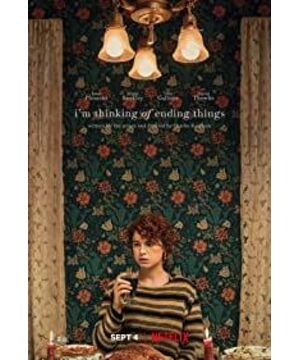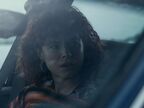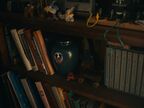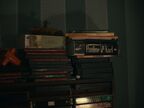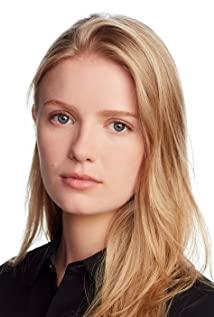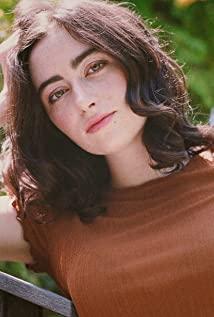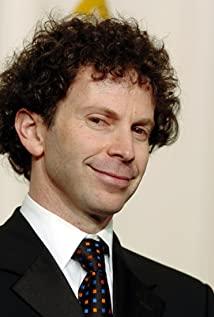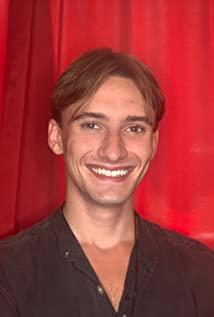In the second half of this year, Nolan's new film "Creed" was unsurprisingly aroused after the release of heated discussions. With brain-burning and incomprehensible tags, experts from all walks of plot analysis were happy to take the audience over and over again. Solve the plot puzzle of Nolan. However, Charlie Kaufman's new film "I Want to End All of This", which was released on streaming media during the same period, seemed to be a bit colder. Charlie Kaufman, a man known as one of Hollywood's best screenwriters, has always been known for his weird, suspenseful and surreal screenwriting methods.
As a screenwriter, Charlie Kaufman is unconventional. He boldly pioneered and innovated a brand-new script writing model, and used a unique and diverse way to structure the space of the film, thus making the film very open. This deconstruction form Make the movie fully integrated into the script framework, so some people say that the script written by Kaufman is a maze. Even if he shows you the model of the entire maze first, when you are really roaming in the world of images, you will still be thinking about every corner. And amazing.
"I want to end it all" is an award-winning novel adapted from the Canadian national writer Ian Reid. It is also another self-edited and directed work five years after Kaufman violated the screen, and Kaufman himself said it would be His final work. The 62-year-old creator is not considered senior in Hollywood. After all, senior directors such as Eastwood, Martin Scorsese, and Woody Allen are still insisting on creating. It is inevitable that Kaufman ended his career so early. People sigh, but also pave the way for the movie here with a sentimental background. We don’t know why Kaufman called for such an early curtain call, but there must be his farewell speech in this final work.
Watching Kaufman’s movies is not an easy task. Although suspense, time, and space are also the labels of Kaufman’s movies, unlike Nolan, Kaufman focuses on daily life, and uses a kind of seemingly nothing The way of relevance connects these trivial daily routines together to form a story. What the audience can do is to put together a complete picture of the story in these fragments of time and space. In "Synonyms of New York", Kaufman cuts the movie into scene-like puzzles like a crazy scissors-hands. The final movie presents a stunning collage. The synonym is A method of using external things to inspire thinking and develop creative potential was proposed by Professor Weijian Gordon of Massachusetts Institute of Technology in 1944. Gordon found that when people see an external thing, they are often inspired to think. The implication is analogous thinking. And this way of thinking has little connection with consciousness, but is closely related to various things in daily life. And this method is also the core of Kaufman's movies. Understanding this method and watching Kaufman's movies can also understand the core of what the director wants to express.
There are not many scenes in "I Want to End All of this". The daily life of an old man is interspersed in the story of a couple, implying that the large scenes are all the old man's inner imagination or memories. The movie starts on a snowy day. A couple wants to drive to meet the man’s parents and have dinner together. On the way, the two have a conversation involving life and personal emotions. This is why the movie is called the magic of light and shadow. The beginning of the movie is Kaufman’s blindfold. The simple scene in the car is overhead from reality. In the psychological activities of people, space and time can be arbitrarily distorted. Therefore, the dialogue between the heroine and the heroine is actually the inner analysis of the outer characters. Kaufman reminds the audience through the constant changes of the heroine's name that the characters are not real but mixed characters in the outer memories, and the incident is not real. Yes, it's just a path leading to memories. After arriving at the parents’ house, the time in the house began to become more distorted and abstract. The concept of time became disordered in the house. Parents appeared in the identity of various age groups. Then I thought about it when we recalled a certain event in the past. Full of contradictions and time disorder. The actress who starred in the man’s mother is also a frequent visitor to horror movies. The role of Kaufman was also deliberately chosen. The indoor scenes are obviously weird and spooky. The audiovisual of various horror movies are also used here, such as repeating in the washing machine. The clothes taken out, the stairs where no one responds, and the characters that appear suddenly. These commonly used bridges in horror films are also used by Kaufman. The purpose here is not to scare the audience, but to show repetition and mediocrity. The daily life of inaction is the most terrifying scene. When leaving their parents’ house, the male and female lead passes by an ice cream shop on the return journey. This is also one of the most interesting scenes in the movie. The strange dialogues of the staff and the male lead’s inexplicable retreat make this scene full of mystery, because the interest in this node is deliberately sought. Come to an interview with Kaufman to explain. First of all, Kaufman explained that the staff at the ice cream shop, including all the characters in the play, are from the characters in the protagonist’s memory, but Kaufman did not say clearly. He also mentioned that the few female shop staff who giggled and laughed may be trapped in the heart of the protagonist. Some of the characters, they are like real-world shop assistants, they change and communicate, so they are familiar with the male protagonist and also tease the male protagonist. What Kaufman wants to create is a dreamy moment, a past moment in his heart, where the familiar past is also entangled with the root of the problem. Kaufman also mentioned that the heroine in the original novel stayed in front of a dairy dessert shop, but he couldn't apply this scene well, so he made changes to make it more mysterious and localized according to his own ideas. At the end of the journey, the hero and heroine
After watching the complete film, I thought of a lot of similar stream of consciousness movies with narratives on dreams or psychological activities, such as David Lynch’s "Muholland Road" and the classic suspense film "Life and Death". Kaufman was obviously right too. This kind of narrative method is very popular, because it is closer to his thinking about the philosophy of life. In Kaufman's film dialogues, many insights on science, art, and literature are also connected in series. Therefore, the manipulation of space and time has never been Kaufman. The basic narrative structure is just to satisfy those who transcend all speculation. People who think are painful, no matter whether this is Kaufman's closing work, the life thinking that Kaufman left us is worth seeing. Finally, a poem "Bonedog" recited by the heroine in the movie is reproduced, which is also a microcosm of this movie or an overview of a life.
It's terrible to go home
Whether the dog licks your face or not
No matter what a wife is waiting for you at home
Still lonely in the shape of a wife
Going home terribly lonely
So that when you recall the moment you left
The place full of heavy air pressure also has some likes
Because once I go home everything will be worse
You want to think about the pests attached to the straw with eagerness
Long journey on the road roadside assistance and ice cream
There are also some special shapes of clouds
And silence because you don't want to go home
Home is...
Just terrible
And the silence and dark clouds of family life
It will only increase the general discomfort
Such clouds are actually very suspicious
Their structure is different from the material you left behind
You yourself are cut out from another piece of cloudy cloth
Be returned, be left
Unlucky meeting in the moonlight
Unwilling to return to places that shouldn't be loose will all be loose
The cloth clothes full of thread are as sloppy and rags as rags
You go home
Like an alien arriving on the moon
Gravitational pull of the earth
Now double the strength
Pulling loose your shoelaces
And your shoulders
Engrave the worrying verse on your forehead deeper
You go home more deeply
A dry well connected to tomorrow
Through a wisp of frail
So and so
No change day after day, you sigh long
Sometimes people are like this
All right
Anyway, you are back
The sun rises and sets like a tired prostitute
The weather has no ups and downs like a broken limb
Everything is static except the ebb and flow of salt in your body
Your vision is dim
You are not affected by the outside weather
The darkness of huge blue whale bones
You're back
With X-ray sight
Your eyes have become a kind of hunger
You came to your home with mutant talent
Come to a house of bones
Everything you see now
everything
All bones
View more about I'm Thinking of Ending Things reviews


